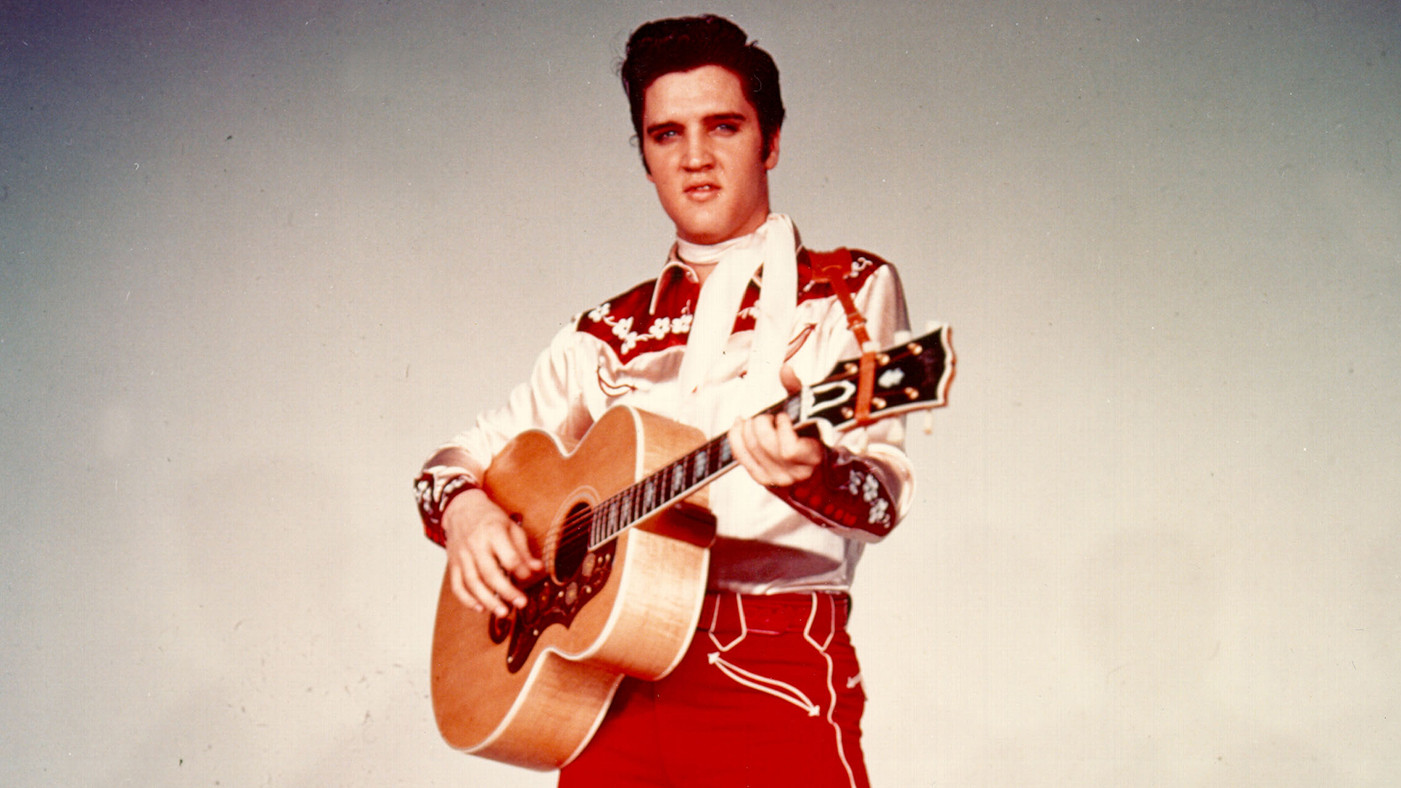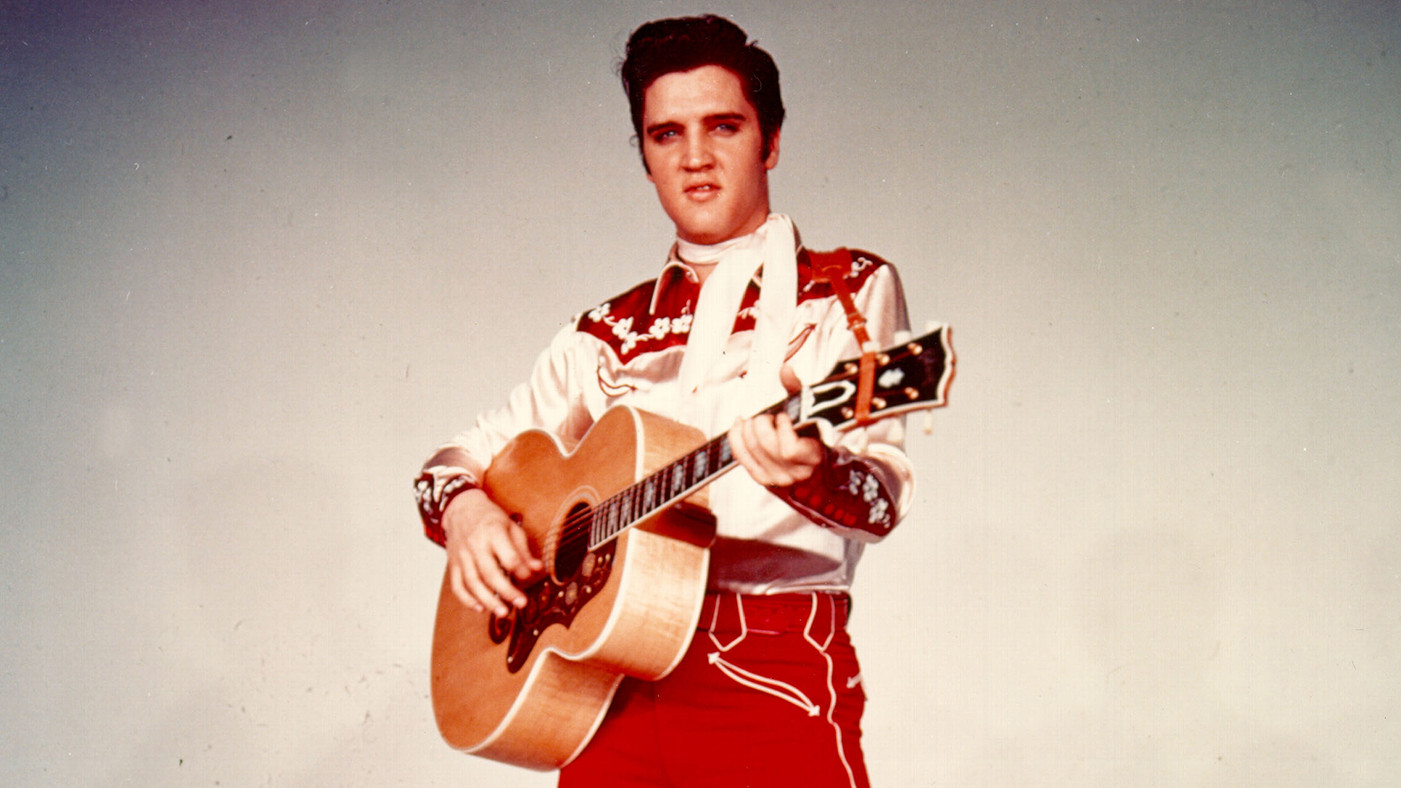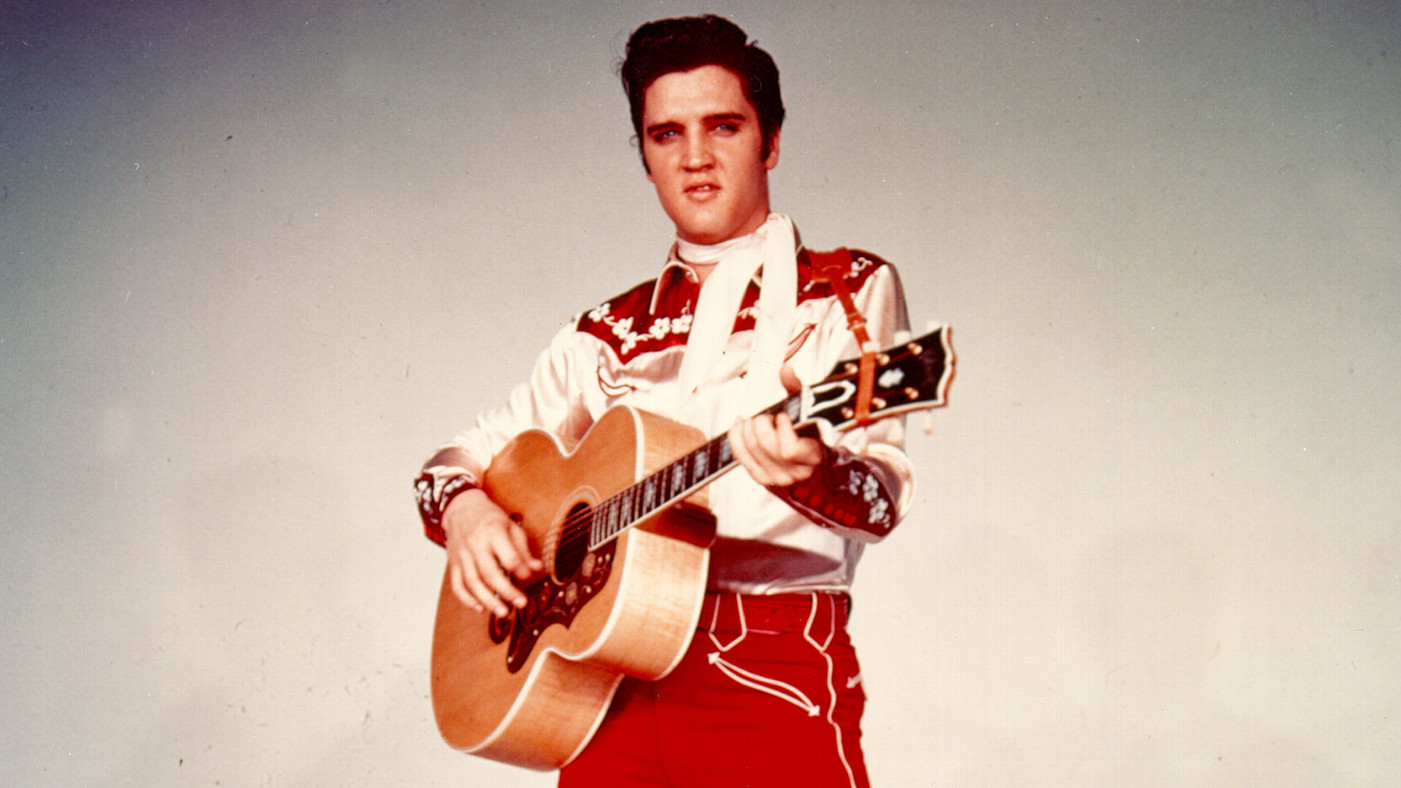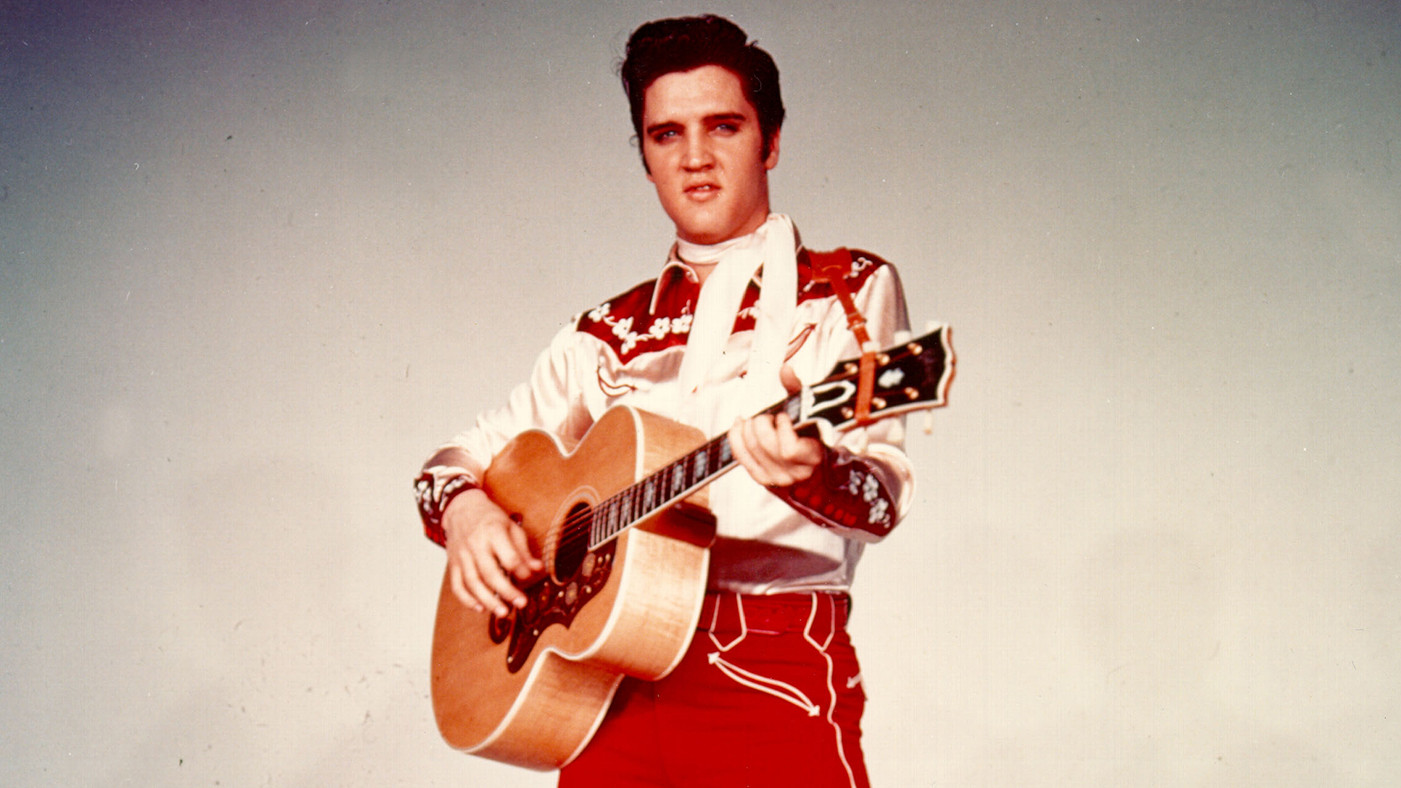Elvis Presley, the King of Rock and Roll, would have celebrated his 80th birthday this month if he were still alive. Even imagining Elvis performing in concert in 2015 isn’t too far-fetched when considering artists like Leonard Cohen, who, despite being older, can still deliver captivating performances. Chuck Berry, even in his late eighties, continued to perform. Had Elvis maintained his health, there’s little doubt he could have continued to grace the stage. While his life took a different path, his music and legacy endure. To commemorate his enduring impact, we’ve compiled a list of some of the Best Elvis Songs, as voted by fans and critics alike, showcasing the breadth and depth of his remarkable career.
Mystery Train
Just before Sam Phillips and Colonel Tom Parker finalized the deal to transfer Presley’s contract to RCA for $40,000, Elvis returned to Sun Studios. There, he recorded his rendition of “Mystery Train,” a song originally by Junior Parker from 1953. Accompanied by Scotty Moore on guitar, Bill Black on bass, and Johnny Bernero on drums, Presley amplified the tempo of Parker’s bluesy original. This rendition climbed to Number 11 on the Billboard Country Chart. However, the subsequent release of “Heartbreak Hotel” by RCA overshadowed Presley’s earlier work. Despite this, “Mystery Train” remains a standout track, cherished as one of Elvis’s most iconic early recordings, embodying his raw energy and innovative sound.
Kentucky Rain
 Elvis Presley
Elvis Presley
Elvis Presley performing live in 1970, singing “Kentucky Rain”, a song that showcased his vocal range and emotional depth during his early 70s performances.
Elvis commenced the 1970s with a powerful release, “Kentucky Rain.” Penned by Eddie Rabbitt and Dick Heard, this melancholic ballad was launched as a single in January 1970. The song reached Number 16 on the Billboard Hot 100 and achieved million-selling status, though it only briefly featured in his live performances. “Kentucky Rain” is celebrated for its emotive lyrics and Presley’s vocal delivery, highlighting a more mature and introspective side of his artistry, different from his earlier rock and roll anthems, and stands as one of the best Elvis songs from his later period.
An American Trilogy
The American Civil War was a century in the past when Elvis started performing “An American Trilogy” in 1972, yet its echoes still resonated deeply across the United States. This song was masterfully crafted by Nashville songwriter Mickey Newbury, who aimed to bridge national divides by weaving together “Dixie,” “The Battle Hymn of the Republic,” and “All My Trials” into a powerful patriotic medley. Newbury successfully blended these iconic tunes into a compelling four-and-a-half-minute piece. “An American Trilogy” became a cornerstone of Presley’s concerts during the final five years of his career, evoking strong emotions and demonstrating his ability to connect with audiences on a profound level through music that spoke to the nation’s history and spirit.
Heartbreak Hotel
 Elvis Presley in Heartbreak Hotel era
Elvis Presley in Heartbreak Hotel era
A young Elvis Presley performing “Heartbreak Hotel” in 1956, capturing the raw emotion and groundbreaking style that catapulted him to national fame.
Many Americans were first introduced to Elvis Presley’s music with “Heartbreak Hotel” in early 1956. While Presley had achieved regional fame, it was this song, released under his new label RCA, that propelled him to national stardom. “Heartbreak Hotel” dominated the Hot 100 chart for an impressive seven consecutive weeks. Its success led to television appearances and ignited a nationwide Elvis phenomenon, a cultural shift that continues to influence music and pop culture today. This track is not just one of the best Elvis songs, but a pivotal moment in music history.
Love Me Tender
Elvis Presley’s 1956 was a year of unparalleled success. He consistently topped the charts with hit after hit, drawing massive crowds of enthusiastic fans wherever he appeared. This phenomenon sparked parental concerns about his influence on youth culture. His final chart-topping single of the year was “Love Me Tender,” a tender ballad penned by Ken Darby. Presley premiered the song on The Ed Sullivan Show, coinciding with the release of the movie of the same title. “Love Me Tender” showcased Elvis’s versatility, proving his appeal extended beyond rock and roll to heartfelt ballads, cementing his place as a multifaceted artist.
Can’t Help Falling in Love
 Elvis Presley in Blue Hawaii era
Elvis Presley in Blue Hawaii era
Elvis Presley serenading fans with “Can’t Help Falling in Love” during his Blue Hawaii period, a song that became a signature closing for his concerts.
For fans attending Elvis’s final concerts, the initial chords of “Can’t Help Falling in Love” signaled the show’s conclusion. This enchanting melody, originally composed for his 1961 film Blue Hawaii, became the closing song for every concert in his post-comeback era. This sweet and sincere tribute to true love provided the perfect, sentimental ending to his performances. Its universal appeal has led to covers by numerous artists, from Bob Dylan to U2 and UB40, with UB40 achieving a major hit with their reggae-infused version in 1993, further demonstrating the song’s timeless quality and making it one of the best Elvis songs appreciated across genres.
Jailhouse Rock
Jerry Leiber and Mike Stoller specifically crafted “Jailhouse Rock” for Elvis Presley’s 1957 movie of the same name. While the subtle undertones of the lyrics, such as “You’re the cutest jailbird I ever did see/I sure would be delighted with your company,” might have hinted at themes of same-sex attraction, these nuances were largely missed by listeners at the time. The song’s infectious energy and rock and roll spirit were undeniable, and “Jailhouse Rock” successfully dethroned “Wake Up Little Susie” from the top of the charts. The song remains a quintessential example of Elvis’s energetic performances and his impact on integrating rock and roll into mainstream culture.
In the Ghetto
 Elvis Presley in 1969
Elvis Presley in 1969
Elvis Presley performing “In the Ghetto” during his 1969 comeback era, a song that marked his return to socially conscious and impactful music.
During much of the 1960s, Elvis’s career was dominated by formulaic B-movies and lackluster soundtracks. Meanwhile, new musical forces like the Beatles and Bob Dylan emerged, casting him somewhat into the shadows. However, his groundbreaking 1968 comeback special dramatically reversed this trend, catapulting him back into the limelight. Capitalizing on this renewed energy, Elvis recorded “In the Ghetto.” This poignant song addresses the cyclical nature of poverty and despair in urban America. It reached Number Three on the charts, solidifying Elvis’s successful return to meaningful and relevant music, proving his enduring ability to connect with audiences through powerful narratives and social commentary, and making it one of the best Elvis songs with a strong message.
If I Can Dream
 Elvis Presley in 1968 Comeback Special
Elvis Presley in 1968 Comeback Special
Elvis Presley passionately singing “If I Can Dream” during his 1968 Comeback Special, a powerful anthem for hope and unity in a time of social unrest.
Just two months after the assassination of Martin Luther King Jr., Elvis Presley entered Western Recorders studio to record “If I Can Dream,” a moving tribute to the civil rights icon. This song served as the emotional climax of his 1968 comeback special, delivered with remarkable passion and vocal power. “If I Can Dream” climbed to Number 12 on the Hot 100 and is now widely regarded as one of the most compelling vocal performances of his entire career. The song’s message of hope and unity resonated deeply, underscoring Elvis’s capacity to transcend entertainment and touch on significant social issues through his music, making it one of the best Elvis songs for its historical and emotional significance.
Suspicious Minds
Elvis was only two years into his marriage with Priscilla when he recorded “Suspicious Minds,” but their relationship was already strained. It’s evident that Elvis channeled some of his personal turmoil, particularly his reflections on his marital shortcomings, into his performance of the song. Written by Mark James, “Suspicious Minds” became his first Number One hit in seven years and was a consistent highlight in his live shows. The song’s raw emotion and relatable theme of relationship struggles connected deeply with audiences, reaffirming Elvis’s ability to convey personal experiences through his music and securing its place among the best Elvis songs that explore complex human emotions.
Elvis Presley’s catalog is rich with iconic tracks that have shaped generations of music lovers. From his explosive rock and roll beginnings to his heartfelt ballads and socially conscious anthems, the best Elvis songs continue to resonate today, proving his timeless appeal and lasting influence on music history.
